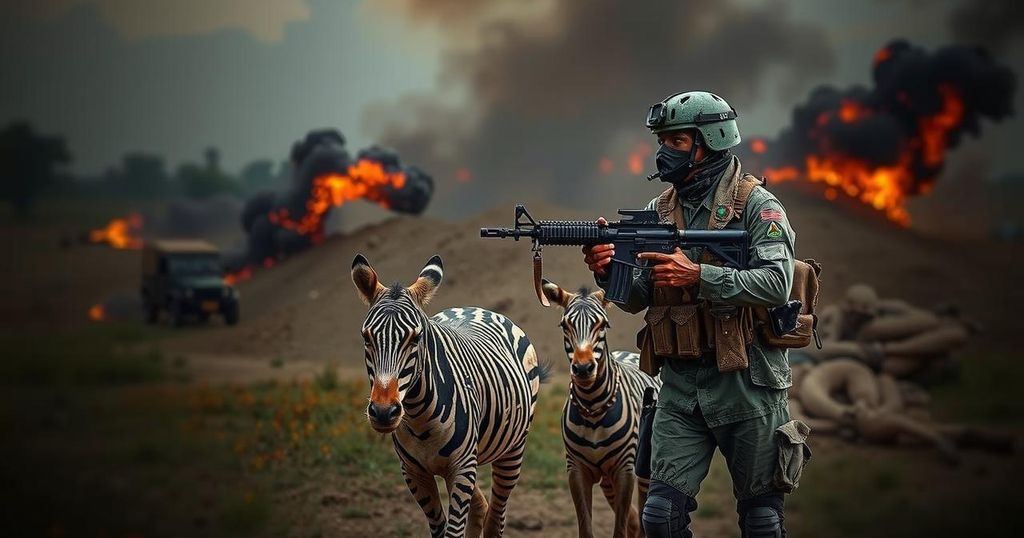Escalation of Violence in Sudan Leads to Humanitarian Crisis
In Sudan, escalating violence has led to the deaths of hundreds of civilians amidst aerial bombings and retaliatory violence between military forces and paramilitary groups. The situation has worsened following the rainy season, exacerbating humanitarian crises as millions remain displaced. Calls for international intervention have intensified, particularly regarding the protection of civilians amid accusations of war crimes and ethnic cleansing.
A recent escalation of violence in Sudan has resulted in the deaths of hundreds of civilians due to intense fighting, aerial bombings, and retaliatory attacks. Activists indicate that the conflict has intensified following the conclusion of the seasonal rains, with reports of paramilitary forces engaged in the plundering of villages and the perpetration of heinous acts such as sexual assault and murder against local populations. As territorial control shifts amidst the turmoil, a prominent military commander has allied with a rival faction, exacerbating an already complex situation. Evidence of international involvement in the conflict has surfaced, including the crash of a military cargo plane in Darfur, which reportedly carried Russian personnel. This development underscores the deepening entanglement of foreign contractors within Sudan’s internal strife. Despite losing significant ground to the powerful Rapid Support Forces (R.S.F.) over the past year and a half, the Sudanese military now appears to be regaining some operational efficiency. Both factions are currently embroiled in serious accusations of war crimes, with only the R.S.F. facing allegations of ethnic cleansing, prompting urgent pleas for international intervention to protect civilians from further violence. Kholood Khair, the founding director of Confluence Advisory, emphasized the importance of the current environment, stating, “The fighting season has just restarted, and both sides want to jostle for an early advantage.” Amidst this cycle of violence, the humanitarian crisis has deepened, with over ten million individuals displaced, widespread famine affecting many communities, and a surge in diseases such as cholera and dengue fever. This combination of dire circumstances highlights the urgent need for a robust international response to safeguard civilian lives and restore stability in the region.
The ongoing conflict in Sudan has escalated significantly over the past 18 months, primarily between the regular military forces and the Rapid Support Forces, a powerful paramilitary group. The conflict has led to humanitarian crises, with millions displaced and facing famine and disease outbreaks. Seasonal weather patterns, such as the rainy season, have historically influenced the dynamics of military engagements in the region. Recent reports indicate a troubling increase in violence following the end of the rains, as both factions vie for control over strategically significant territories. Furthermore, international involvement is a growing concern, raising questions about the complexities of foreign influence amid Sudan’s internal strife.
In summary, the intensification of violence in Sudan poses a significant threat to civilian populations, as evidenced by the mounting death toll and humanitarian crisis. The involvement of foreign contractors further complicates the situation, making it imperative for the international community to intervene and provide protection for vulnerable civilians. Efforts to stabilize the region and prevent further atrocities must be prioritized to alleviate the suffering of the millions affected by this brutal conflict.
Original Source: www.nytimes.com




Post Comment